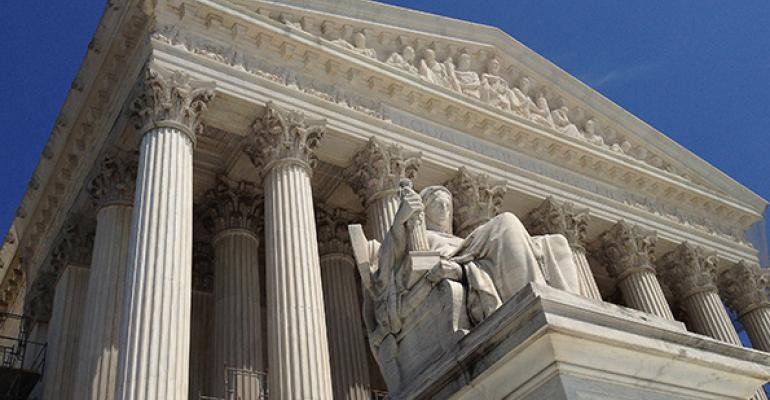The Supreme Court heard oral arguments Tuesday in Liu v. the Securities and Exchange Commission, a case that could potentially limit whether the SEC can pursue disgorgement against defendants, including investment advisors, in federal court, which could affect how the SEC approaches enforcement.
Disgorgement is considered a remedial tool used to pay back individuals or investors who may have been adversely affected by a defendant’s scheme. Civil penalties, by contrast, are levied as a form of punishment for the violation in question.
The Supreme Court case concerns Charles Liu and Xin Wang, a California couple who were charged in 2016 with misappropriating about $27 million from Chinese investors, according to a client alert from the law firm Reed Smith.
After the couple was ordered to repay that amount in disgorgement, the Supreme Court decided on Kokesh v. SEC in 2017, which found that disgorgement rulings were subject to a five-year statute of limitations. In that case, the court refused to rule on whether the SEC could pursue disgorgement in federal court altogether, according to the Reed Smith alert. In light of this new ruling, Liu brought his case before the Supreme Court, arguing that the SEC could not pursue disgorgement in federal court at all.
“Any individual or entity facing litigation or considering a settlement with the SEC or another regulator that traditionally seeks disgorgement as equitable relief should consider the possibility that the Supreme Court might find disgorgement beyond the federal courts’ equitable authority,” writes Michael Birnbaum, Jina Choi, Jordan Eth and Joel Haims, partners at law firm Morrison & Foerster, in a client alert.
Removing disgorgement entirely could have a pronounced impact on SEC enforcement, as it is the most common penalty obtained by the SEC, according to Reed Smith. In fiscal year 2018, disgorgement made up 64% of the agency’s total monetary relief, and that increased to 74% in fiscal year 2019, although disgorgement can also be sought in administrative filings, not only through federal court.
If disgorgement was put at risk, Patrick Burns, the managing attorney at the Patrick J. Burns Law Firm, suggested that the SEC may seek to amend its own rules or even push for legislation.
“I think it would take a significant arrow out of their quiver, so to speak,” Burns said. “[Disgorgement is] a big tool to force a settlement. For the SEC’s purposes, if they can settle cases without bringing them all the way to trial or seeing them through, that’s good for them, because they don’t have the resources to try every case.”
Brian Hamburger, the founder and CEO of MarketCounsel, said he believes RIAs would likely benefit from a decrease in overall sanctions from the SEC.
“However, the SEC will still be able to show the same damages that they did before any prohibition on ordering disgorgement, and over time, just pursue increased fines and penalties against the RIA,” he said. “The re-characterization from disgorgement to fines might additionally expose an RIA to a subsequent civil action by their client on substantially the same set of facts.”
Burns said he felt it was unlikely the court would entirely strike down disgorgement.
“I just think that disgorgement has been in place for so long in a lot of cases; if it was to disappear it would leave a massive hole in the enforcement system,” he said. “We could be surprised, but I don’t see how likely that is.”
Typically, all the opinions of the court are handed down by the final day of the court's term, which will be in late June or early July.





